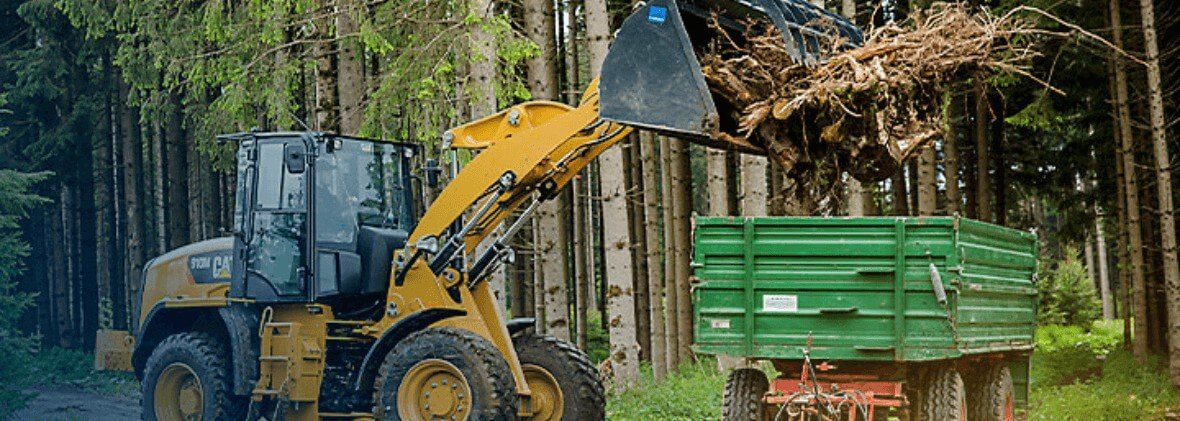
The Importance of Sustainable Practices in Heavy Equipment Operations
In the modern era, the construction industry is under more pressure than ever to adopt more sustainable practices. As a result, companies that use heavy equipment are finding ways to incorporate eco-conscious techniques, tools, and materials into their daily operations. These can include positive steps in many different areas, from minimizing machine idle time and the resulting carbon emissions to introducing measures to reduce waste.
Fortunately, practices that are good for the environment tend to be good for companies as well, especially those that prioritize smart resource usage. Learn more about sustainability in the construction industry and how this field is evolving to be more environmentally conscious while still turning a profit.
Environmental Impact of Heavy Equipment Usage
Traditional practices related to heavy equipment come with some distinct environmental concerns. Here are a few ways construction enterprises are trying to mitigate these issues:
- Shrinking carbon footprint: Heavy equipment in construction uses a large amount of fossil fuels to operate, which results in a significant amount of carbon emissions. Sustainable practices such as adopting cleaner, more efficient engines and environmentally friendly fuel sources like biodiesel can mitigate the emissions released by these machines. Technology that allows crews to work more efficiently and accurately, such as grade and payload solutions, also contributes to this goal by lowering the equipment hours needed to complete a job.
- Conserving resources: Construction work uses a vast amount of resources like steel, concrete, and timber. Sustainable practices focus on optimizing resource use to get the best results. This may take the form of using machines with remanufactured components, incorporating recycled or renewable building materials, or practicing Lean construction that minimizes waste.
Economic Advantages of Sustainability in Construction
Sustainable practices for heavy machinery use have economic advantages that make them worth adopting:
- Savings through efficiency: Prioritizing efficiency in construction processes results in less carbon emissions, but it has the side effect of lowering expenses as well because you're doing more with less. That makes conserving resources — both in terms of labor and equipment hours and physical building materials — a smart economic move.
- Competitive edge: Stakeholders and consumers are placing more value on sustainability. By adopting eco-conscious practices, you are demonstrating a commitment to this mindset and building a positive reputation for your company, which could translate to more contracts.
- Regulatory compliance: Construction companies face strict environmental regulations, and they're likely to only grow tighter. Companies that embrace sustainable practices will have an easier time staying ahead of new regulatory changes and avoiding potential penalties associated with noncompliance.
The Societal Impact of Sustainable Practices
Building with more efficient methods and eco-friendly materials is good for more than just the company and the environment — the surrounding community will see benefits as well:
- Community engagement: Construction projects impact local communities. Adopting new sustainable practices shows responsibility, which can foster a more positive relationship with the local residents. This is a good way to improve your local reputation and even attract new business opportunities.
- Healthier environments: Sustainable practices benefit the health of workers and those around your site. Reduced emissions and lower pollution levels maintain better air quality, which can make a substantial difference to the health of those exposed to or operating heavy equipment.
Challenges With Moving to Sustainable Construction
While many benefits come from embracing sustainability in the construction industry, it does require some work. These are some of the barriers some companies will need to overcome to fully adopt new sustainable practices:
- Initial investment: The initial investment in buying more efficient equipment is arguably the biggest challenge to overcome, so view it as a strategic investment that will pay off in the long run.
- Transition to new technologies: To embrace new sustainable practices, you need to embrace new technologies. Construction companies will need to train their staff and crew on these updated solutions. With proper planning, you can establish education initiatives to keep efficiency and productivity high in the interim.
Explore Rentals to Support Your Construction Operation
The Cat® Rental Store connects you to a broad range of construction equipment from our extensive dealer network, including many of the newest solutions on the market. These machines boast advanced technology that lets you work more productively than ever while minimizing fuel requirements.
Whether you need a temporary solution to cover a gap in your fleet or want to test-drive the newest technology before investing in it, your local Cat dealer has you covered. They can also provide insight on how to use your rental as productively as possible to support your sustainable operation.
Reach out to your nearest Cat dealer today to learn more or request a quick quote on any equipment you find online.
